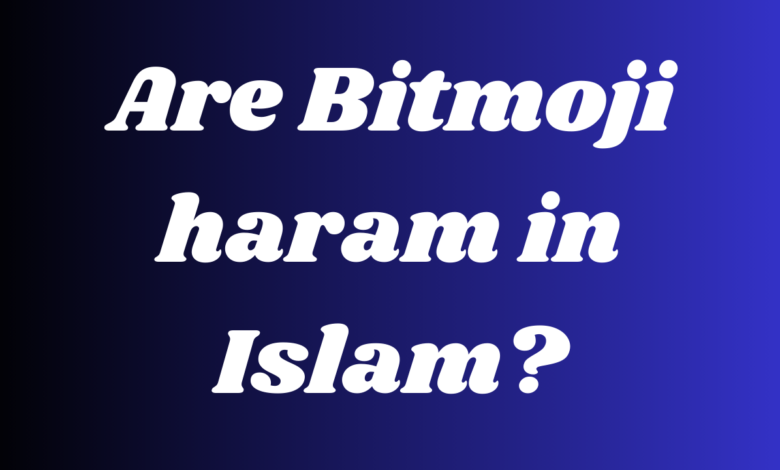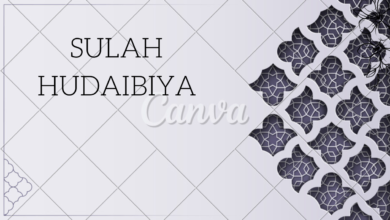Are Bitmoji haram in Islam? why? Guide 2023
Bitmoji in Islam: A Controversial Question

Are Bitmoji haram in Islam?
The permissibility of Bitmoji in Islam is a matter of debate. It depends on individual interpretations and intentions. Some scholars argue that they might be considered haram due to concerns about idolatry and imitation of Allah’s creation, while others see them as permissible forms of personal expression.
Introduction–Are Bitmoji haram in Islam?
In today’s digital age, technology has woven itself into the very fabric of our daily lives, bringing with it a host of new questions and concerns, some of which are rooted in religious beliefs and values. Among these questions is whether Bitmoji, those playful and customizable avatars that have become a staple in our digital conversations, are considered haram (forbidden) in Islam. This article aims to delve into the issue, exploring various perspectives and arguments to provide a balanced understanding of the subject.

Understanding Bitmoji
Bitmoji, short for “biting the emoji,” are personalized cartoon avatars created by individuals using the Bitmoji app. These avatars can be customized to resemble the user’s physical appearance, clothing style, and even their expressions. They are often used to add a personal touch to text messages, emails, and social media posts.
The Argument Against Bitmoji
- Graven Images: Some argue that creating a personalized representation of oneself, even in the form of a cartoon avatar, can be seen as a form of graven image or idolatry, which is strictly forbidden in Islam. This viewpoint contends that the creation of Bitmoji might be considered a form of self-worship or narcissism.
- Imitating Allah’s Creation: Another argument posits that creating Bitmoji, which imitate human features and expressions, is akin to attempting to replicate Allah’s creation, which is considered disrespectful and potentially haram.
- Wastefulness: There is also the argument that time spent on creating and using Bitmoji could be considered a waste of valuable time and resources that could be better spent on religious or productive activities.
The Argument in Favor of Bitmoji
- Personal Expression: Proponents of Bitmoji argue that they are merely a form of personal expression and creativity. Just as drawing a self-portrait or taking a photograph is not inherently haram, creating a digital representation of oneself can be viewed as a form of self-expression rather than self-worship.
- Intent Matters: In Islam, intentions are crucial. If someone uses Bitmoji for lighthearted and innocent communication, without harboring any ill intentions or engaging in sinful behavior, it can be seen as permissible.
- Modern Communication: Bitmoji can enhance digital communication by adding a personal touch or conveying emotions that may be challenging to express with words alone. From this perspective, they can be seen as a tool for better communication rather than an act of idolatry.
Conclusion
The permissibility of using Bitmoji in Islam is a complex and nuanced issue that depends largely on individual intentions and interpretations. While some may argue against it based on concerns of idolatry and wastefulness, others may view it as a harmless form of self-expression and a tool for enhancing communication in the digital age.
Ultimately, it is essential for individuals to reflect on their own intentions and consult with knowledgeable religious scholars or leaders if they have doubts or concerns about the use of Bitmoji in the context of Islamic ethics. In an ever-evolving digital landscape, the key is to strike a balance between embracing technology and upholding one’s religious beliefs.
FAQs-Are Bitmoji Haram In Islam
Are Bitmoji haram in Islam?
The permissibility of Bitmoji in Islam is a matter of debate. It depends on individual interpretations and intentions. Some scholars argue that they might be considered haram due to concerns about idolatry and imitation of Allah’s creation, while others see them as permissible forms of personal expression.
What factors determine whether using Bitmoji is haram or not?
The key factors include your intentions, the context in which you use Bitmoji, and the extent to which it aligns with Islamic principles. If your use of Bitmoji is for innocent communication and self-expression without any harmful intentions, it may be considered permissible.
Is creating a Bitmoji avatar a form of self-worship?
Some argue that creating a Bitmoji avatar could be seen as a form of self-worship or narcissism. However, this depends on the individual’s intentions and the extent to which they prioritize their digital avatar over more significant matters.
Can Bitmoji be used for educational or professional purposes?
Bitmoji can be used for various purposes, including education and professional communication. The permissibility often depends on the content and context in which they are used. As long as they don’t promote anything haram and serve a legitimate purpose, they can be considered permissible.
Are there specific guidelines for using Bitmoji in Islam?
There are no specific Islamic guidelines explicitly addressing Bitmoji. Therefore, individuals are encouraged to use their best judgment, considering their intentions and the potential impact on their faith and character.
How can one ensure the permissibility of using Bitmoji in Islam?
To ensure the permissibility, it’s advisable to use Bitmoji sparingly, avoid any inappropriate or disrespectful content, and prioritize your faith and values above digital representation. Consulting with knowledgeable religious scholars or leaders for personalized guidance is also recommended if you have concerns.
Are there any alternatives to Bitmoji that might be more in line with Islamic principles?
If you have reservations about using Bitmoji, you can explore alternatives like using emojis or text to express emotions and sentiments in digital communication. These options are generally considered more straightforward and less controversial.




